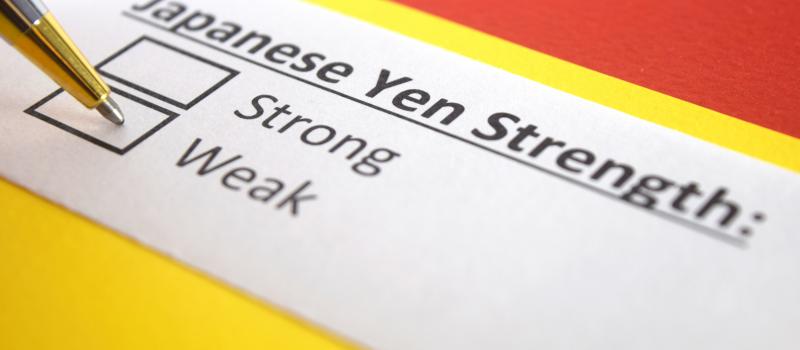A Weak Yen Is Dragging Japan Down
posted by Richard Katz on December 8, 2022 - 9:26am

My Wall Street Journal Op-Ed On the Yen.
The past few weeks of encouraging news on U.S. inflation have boosted not only American stock and bond prices, but also the Japanese yen. From Nov. 3 to Dec. 6, the yen has strengthened from 148 to the dollar to 137 (smaller numbers mean a more valuable yen). That is no coincidence. A widening gap between U.S. and Japanese interest rates lures money from Japan to America, lowering demand for the yen. A narrowing gap does the opposite. The ups and downs of U.S. interest rates and the yen mirror the pace of U.S. progress on inflation.
But when American inflation reverts toward normal, the yen will nonetheless remain much weaker than it has been in the past. As of October, the Bank of Japan’s measure of the “real effective” yen—which takes into account the differences in price trends between Japan and other countries and thus better reflects competitiveness—is the lowest it has been in a half-century relative to all its trading partners. That record low reflects something more fundamental than recent interest-rate gyrations. The yen is weaker because Japan’s economy is weaker.
For decades, Japan ran annual trade surpluses. But in the past decade, Japan has suffered mostly trade deficits, even though the real yen is 30% cheaper than it was from 1994 to 2012. Japanese companies that used to compete on quality and create innovative must-have products now use low prices to prop up exports.
Consider electronics, formerly an export superstar for Japan. In 2000, its electronics companies enjoyed a trade surplus equal to a massive 1.3% of gross domestic product. Now the sector runs trade deficits. Moreover, these companies have trouble competing even when they manufacture their goods in other countries with lower costs. From 2010 to 2020, despite an explosion in global demand for electronics and the sector’s embrace of global manufacturing, Japanese electronics firms’ global sales plunged 30%.
Electronics is hardly the only sector of the Japanese economy that has become uncompetitive internationally. Global competitiveness depends on mastering today’s digital technologies. The software and associated digital hardware in a modern car costs about $5,000 to $10,000 a car, depending on the model. Yet among 64 rich and industrializing countries, Japan ranks 53rd in how much benefit its companies receive from each dollar they plow into digital technology.
The cheap yen doesn’t only reflect Japan’s economic troubles, it adds to them. An excessively weak currency can do as much damage as an excessively strong one. In Japan’s case, any benefits from a yen this low are far outweighed by the costs. Few Japanese economists believe the Bank of Japan’s claim that today’s weak yen provides a net benefit.
After all, a weak yen no longer boosts Japan’s exports and gross domestic product as much as in the past. It’s not only because the competitiveness of industries like electronics is declining. Japan’s auto makers, for example, remain competitive, but they now rely on overseas production, not exports, for 85% of their overseas sales.
Worse yet, a weak yen substantially reduces real wages and thus reduces consumer purchasing power. That is because its weakness causes big price hikes in import-intensive food and energy products, on which Japan is especially reliant. Ninety percent of the total rise in prices in Japan over the past 18 months—as well as in the past decade—has come in these products. Prices in the rest of Japan’s economy have risen only 2% since 2012.
This is hardly the healthy domestic-led 2% annual inflation that Japan’s central bank has tried to produce. Paying more for indispensable imports transfers income from Japanese households to overseas producers, undermining GDP growth even as it adds to the profits of Japan’s multinationals. The weak yen, along with tax hikes and wage stagnation, is a main reason why real consumer spending in 2019 (pre-Covid) was nearly 1% lower than in 2013 and today is 2.6% lower. There has never before been such a long-lasting drop in household consumption in the postwar era.
Some claim the country’s central bank could counter the weak yen simply by raising interest rates. But is that really so? A quarter-century of near-zero interest rates has created a host of Japanese companies addicted to free money. Today, 37% of all bank loans charge less than 0.5% interest, and, among these, half charge less than 0.25%. An abrupt substantial rate increase would mean that many companies with millions of employees would suddenly look a lot less solvent.
Japan needs solid reforms that improve underlying productivity and innovation, not financial manipulation. The yen’s drop has sounded the alarm. Will Japan’s political and business leaders respond?

